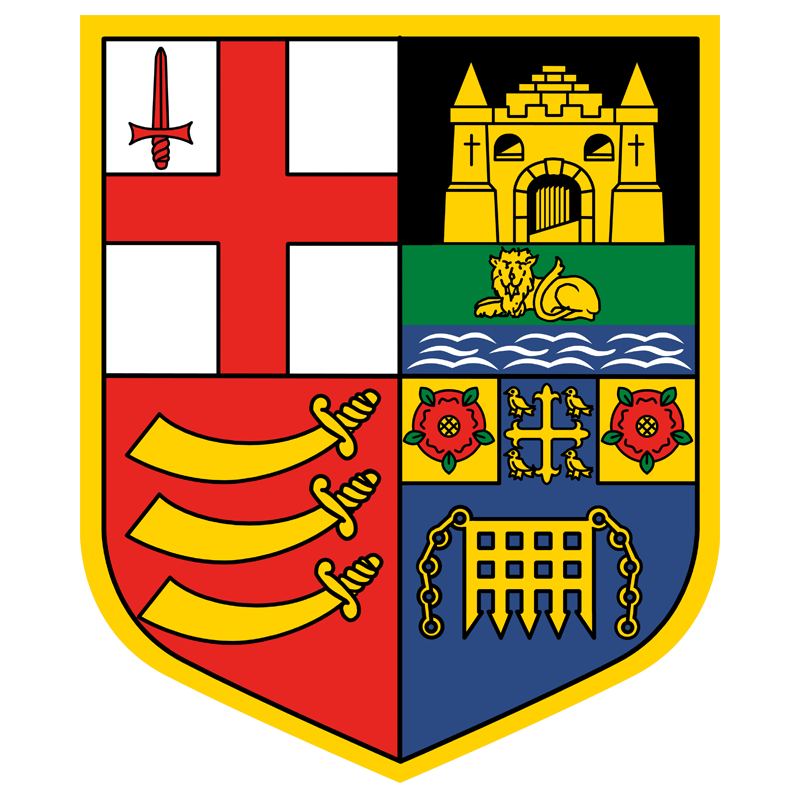We are very sorry to have to announce the death on 20 February 2015 of Nigel Smith at the Trinity Hospice on Clapham Common, at the age of only 54. As those who have been closer to the Putney scene will be aware, he was diagnosed during the course of last year with cancer of the colon, and had been valiantly fighting the condition since.
Nigel with the Secretary's Cup which he donated to the Met
His successor as Hon. Secretary, Julian Ebsworth, writes:
Nigel André Smith was born and bred in Putney, started in rowing administration at the age of 16, and dedicated much of the rest of his life to the sport. He was a devoted servant to the Club for nearly three decades, without equal, but also found the time to contribute to rowing at large, both on the Thames and at international level. He was a fixed and certain presence in the sport, bringing his own particular style to all that he did, and when he wasn’t running the show he was a constant behind-the-scenes presence.
Born on 24 January 1961, Nigel’s schooling started at Glengyle School in Carlton Drive, Putney (very much an ‘old style’ boys’ prep school which would probably horrify today’s inspectors, and sold on in 1986; there is an entertaining series of recollections from alumni on a weblog), then Emanuel School where he first came into contact with rowing. One of his coaches was Charles Dimont (of happy memory, LRC member and one time Chairman of the Met Regatta), who was to introduce him to school rowing admin. Nigel never forgot Emanuel, going back to help coach 3rd year squads on Saturday mornings for many years. Through Charles he was also introduced to LRC in 1977.
His career in LRC administration started straightaway: Entries Secretary in 1979, when he was still at school, and 1980; Assistant Hon Secretary in what was the busy 125th anniversary year 1981; and then the following year Maurice Rayner stepped down as Hon Secretary, a position Nigel was to occupy for the next 22 years until 2003, a record term of any office in the club. The load on the Hon Secretary was heavy, as it included the full burden of membership duties. This was not done without some dry humour at times, sending out one year for example subscription notices dated Christmas Day (and he probably was in the office that day). He left to his successors some carefully kept files, records and memorabilia; he knew the London Boat House Company articles of association, the bye-laws and the residents’ rules backwards. To be on the wrong side of Nigel in these matters was not altogether a beneficial experience.
A host of appointments sprang up alongside his LRC duties. Charles Dimont introduced him to regatta administration with the Met. He joined the Committee in 1980 and then in 1983 succeeded Bernie Regan as Hon Secretary, being central to the regatta’s growth to one of the largest rowing events in the country over the next 25 years. In 1981 Nigel joined the National Championships Committee for 10 years, first as Assistant Secretary and then as Hon Treasurer. He was active with the River Thames Society. Peter Coni was instrumental in fulfilling Nigel’s ultimate aim, namely to assist at Henley Royal Regatta, where he was appointed a Chairman’s Assistant. Nigel never competed at HRR, but in 1989 (the 150th anniversary of the first Henley) he took over Peter’s thwart at short notice in a unique LRC Captains’ 12-oared crew. To his delight he rowed at 6, still armed with his radio and two pagers, and enjoyed the procession past the enclosures.
Nigel also turned his skills to umpiring. He qualified as an umpire on home waters in 1983; his first disqualification was of a Thames RC crew in a final at Maidenhead Regatta (good man). He gained the multi-lane umpiring endorsement in 1994 and then progressed to international level, obtaining a FISA licence in 1999. He was to serve at some nine FISA and other international events, including Masters and a World Cup in Hazewinkel, over the next seven years. He was a strict, but fair, umpire.
Nigel’s gainful ‘weekday ’ employment had been in company secretary work at chartered accountants’ firms in the City. He decided to make a complete break for a new career on the river in his late 40s and, to his great credit, he decided to train for a Maritime and Coastguard Agency National Boatmaster’s Licence, which he gained in 2012. He became a Craft-Owning Freeman of the Company of Watermen and Lightermen two years later.
These notes are mainly based on two sides of closely typed A4 that, bless him, Nigel wrote about himself some six or so years ago. He modestly omitted to mention that the ARA Chairman, Di Ellis, presented him at the 2002 annual dinner (on board Tom Woods’ Silver Sturgeon) with an International Olympic Committee diploma to mark the 2001 International Year of Volunteers, signed by Juan Antonio Samaranch, “for a remarkable contribution, as a volunteer, to the development of sport ...”. Nigel was given a large Dickinson & Foster lithograph of Victorian Henley worthies after his years as LRC Hon Secretary. But he probably treasured most a specially struck gold Met medal that he received on retirement from the office of Secretary after 25 regattas, in 2008.
Nigel’s last few several years were not the easiest for him, but he had good and considerate friends on the Embankment. We must thank Chas Newens, Adrian Sanmogan and family, and the Trinity Hospice on Clapham Common, for being a bedrock for him in his final months and weeks as he battled with his pernicious illness. Rowing is now the poorer for Nigel’s departure at such an unreasonably early age.




